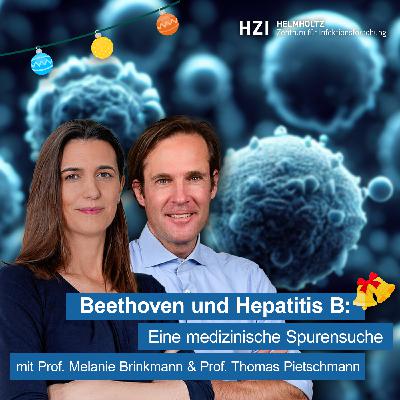Mini organs, big impact: How organoids are revolutionizing infection research
Update: 2025-04-23
Description
In this episode of HZI InFact, Dr Kristin Metzdorf, Deputy Head of the Department "Innovative Organoid Research" at the Helmholtz Centre for Infection Research (HZI), talks about a pioneering tool in biomedical research: organoids. These tiny, organ-like cell structures are grown from stem cells - and open up completely new possibilities for studying infectious diseases in human tissue.
What exactly are organoids? How are they made in the lab? And why could they replace animal testing in the future and contribute to the development of new therapies?
Topics of the episode:
• What organoids are - and why they're not just 'mini-organs'
• How a robot called Molly is helping to fully automate the production of cell cultures
• Why organoids are ideal for studying viruses and bacteria
• How infection processes can be realistically simulated in the lab
• What role they will play in the personalized medicine of the future
• Why organoids can help reduce animal testing
Exclusive insights:
Dr Metzdorf talks about how her department has built up an automated organoid platform in a very short time - and why international collaboration is crucial to its success. She also explains why organoids are particularly well suited to understanding complex infection processes such as SARS-CoV-2 or tuberculosis - and how she herself is inspired by neurobiology.
What exactly are organoids? How are they made in the lab? And why could they replace animal testing in the future and contribute to the development of new therapies?
Topics of the episode:
• What organoids are - and why they're not just 'mini-organs'
• How a robot called Molly is helping to fully automate the production of cell cultures
• Why organoids are ideal for studying viruses and bacteria
• How infection processes can be realistically simulated in the lab
• What role they will play in the personalized medicine of the future
• Why organoids can help reduce animal testing
Exclusive insights:
Dr Metzdorf talks about how her department has built up an automated organoid platform in a very short time - and why international collaboration is crucial to its success. She also explains why organoids are particularly well suited to understanding complex infection processes such as SARS-CoV-2 or tuberculosis - and how she herself is inspired by neurobiology.
Comments
In Channel














